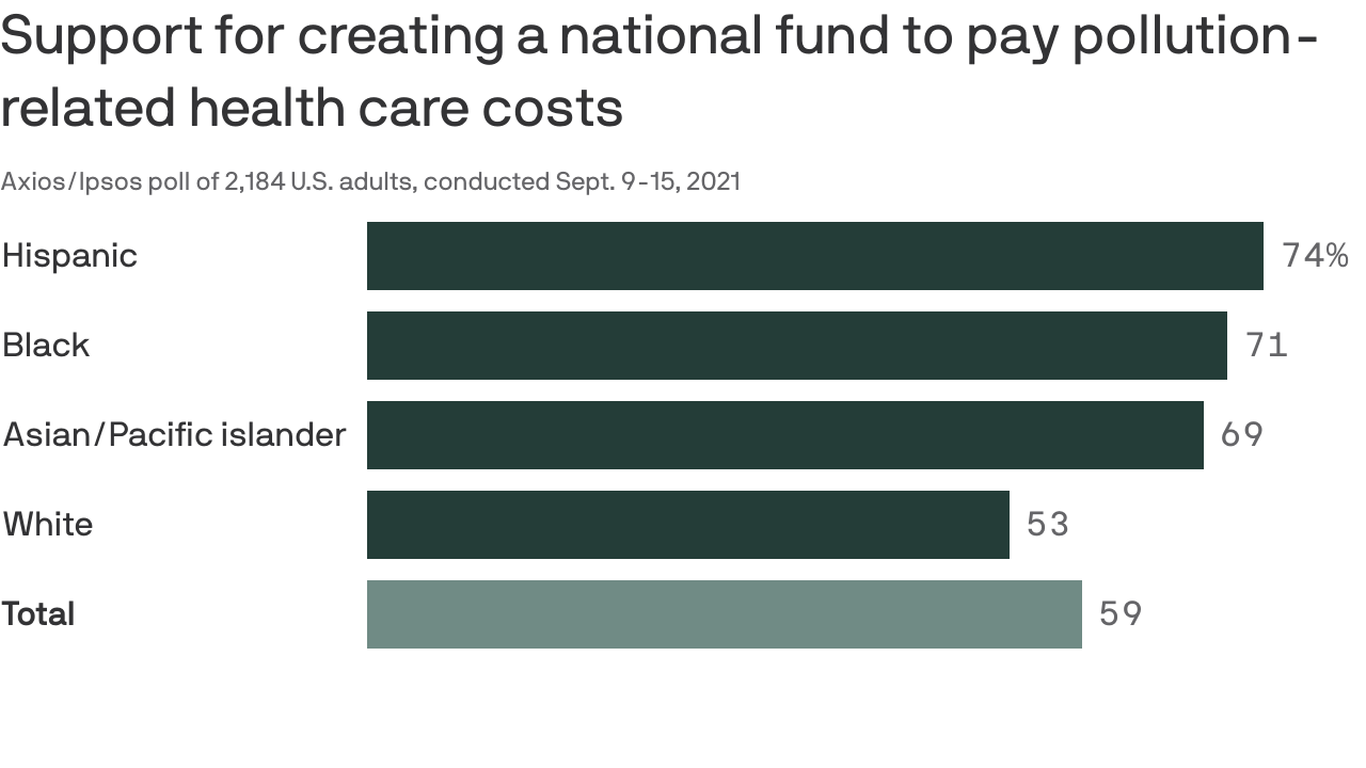Axios roundtable on the future of climate change and lung health
On Wednesday, September 15, Axios’ health care reporter Caitlin Owens and climate and energy reporter Andrew Freedman hosted a virtual roundtable discussion with policy leaders, healthcare professionals, and environmental experts on the impact of climate change on people living with respiratory illnesses.
Andrew Lindsley, Medical Director and Asset Lead at Amgen, started off the conversation by addressing the gravity of climate change as it relates to lung health and respiratory diseases.
- “Climate change can directly cause or aggravate pre-existing respiratory diseases, and they can drive an increased exposure to risk factors associated with respiratory diseases, including asthma.”
National Assistant Vice President of Healthy Air at the American Lung Association, Laura Kate Bender, explained how recent research confirmed that devastating wildfires have negatively impacted air quality levels.
- “What we found is that we are continuing to see the impact of climate change on the quality of the air nationwide. Where that really showed up in this year’s report was with particle pollution. We saw more people were exposed to harmful short-term levels of particle pollution that we can tie back to the wildfires.”
Executive Director of Indiana University’s Environmental Resilience Institute, Dr. Gabriel Filippelli, referenced a study he conducted in several U.S. cities to highlight the connection between small vehicle transit usage and decreases in levels of NO2, a harmful lung irritant.
- “It shows a roadmap that with different transportation systems of different models or even electrifying vehicles, it can have a significant local improvement in air quality and also deal with climate change at the same time.”
Abby Young, Manager of Bay Area Air Quality Management District’s Climate Protection Program, described how climate change especially exacerbates health issues among vulnerable populations.
- “When a community is already suffering from a high degree of air pollution and respiratory ailments, and then you layer on all these impacts that we’re talking about from climate change, you make a bad situation even worse.”
Interim Director of the Center for Climate, Health, and the Global Environment at Harvard T.H. Chan School for Public Health, Aaron Bernstein, emphasized the importance of broader social change in ensuring equitable access to healthcare.
- “My biggest hope in this year is that we realize that we can no longer work on issues related to climate or pandemics by trying to build more technological limbs on a tree of life. Through our technologies, our ventilation systems, our vaccines, our drugs. We obviously need those, they’re critical and we have to get people vaccinated, but as we’ve already shown, those things benefit the people who are least at risk first.”
Research scientist at the Sean N. Parker Center for Allergy and Asthma Research at Stanford University, Dr. Juan Aguilera, noted the importance of understanding the intricate make-up of particles that enter our lungs as air quality levels continue to fluctuate.
- “We’re currently researching on what are the effects on the immune system, because as we breathe in these pollutants, it’s also important to notice what’s in the pollutants. We can no longer just focus on the size of the particle, we must know what’s in the particle and what are the effects on the respiratory system, the circulatory system, and the immune system. We’re getting to that point.”
Dr. Georges C. Benjamin, Executive Director of the American Public Health Association, articulated the significance of focusing on vulnerable communities in mitigating the effects of climate change on a policy level.
- “We ought to recognize that the fact that we have these vulnerable communities and where they are, it’s not a secret. These are the same communities that have food insecurity, housing insecurity, income insecurity. While they may have been exposed to some degree because of wildfires that are broader in nature, in terms of polluting the air and floods that are now capturing the communities in which they live, we just have to remember that these communities, while everyone will experience them pretty much the same, these other communities are much less resilient, and they don’t recover.”
Rep. Sheila Jackson Lee (D-TX) acknowledged the crucial role that policymakers play in shaping the future of environmental policy, noting the opportunity and responsibility that lawmakers have to act quickly on the matter.
- “I, for one, will be working to ensure passage of the Build Back Better Act, it has this huge footprint that will implement provisions throughout the country and the state to be able to assure that the warming climate will be addressed.”
Thank you Amgen for sponsoring this event.
